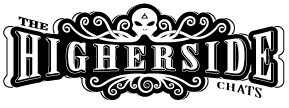Alt. Prohibition Narrative
Ethyl alcohol as a fuel source has been mentioned as a side comment in a few episodes. Does anyone know of a source of info on this topic? Thanks for any help.
... Ethyl alcohol had been used as a fuel for lamps and engines since the early 19th century. Although it was generally more expensive, alcohol fuel offered a stability of supply that was alluring, especially in areas like London or Paris that did not have predictable access to oil supplies.
Alcohol has a lower heat value, or BTU, than gasoline, but a series of tests by the US Geological Survey and the US Navy in 1907 and 1908 proved that the higher compression ratio of alcohol engines could perfectly offset the lower heat value, thus making alcohol and gasoline engines fuel economy equivalent.
One early supporter of alcohol fuel was Henry Ford, who designed his Model T to run on either alcohol or gasoline. Sensing an opportunity for new markets to boost the independent American farms that he felt were vital to the nation, Henry Ford told theNew York Times:
“The fuel of the future is going to come from fruit like that sumach [sic] out by the road, or from apples, weeds, sawdust — almost anything. There is fuel in every bit of vegetable matter that can be fermented.”
Farmers, looking to capitalize on this, lobbied for the repeal of a $2.08 per gallon alcohol tax that had been imposed to help pay for the Civil War. They were aided by those who saw fuel alcohol as a way to break the oiligarchs' monopoly. In support of a bill to repeal the alcohol tax, President Teddy Roosevelt told the US Congress in 1906:
"The Standard Oil Company has, largely by unfair or unlawful methods, crushed out home competition. It is highly desirable that an element of competition should be introduced by the passage of some such law as that which has already passed the House, putting alcohol used in the arts and manufactures upon the free list."
The alcohol tax was repealed in 1906 and for a time corn ethanol at 14 cents a gallon was cheaper than gasoline at 22 cents a gallon. The promise of cheap, unpatentable, unmonopolizable fuel production, production open to anyone with raw vegetable matter and a still, swept the nation.
But cheap, plentiful fuel that can be grown and produced locally and independently is not what the oiligarchs had in mind.
A 1909 USGS report comparing gas and alcohol engines had noted that a significant point in alcohol fuel's favour was that there were fewer restrictions on alcohol engines. For the oiligarchs, the answer was simple: find a way to place greater restrictions on alcohol engines. Thankfully for them, the answer to their problem was already gaining popular support.
In the 19th century, America had a drinking problem. ...
How Big Oil Conquered the World
https://www.corbettreport.com/bigoil/
You may be looking for more practical or technical how-to information but James Corbett did a great job covering the history of Big Oil in two documentaries for anyone interested.
Ethyl alcohol was widely used as a fuel until Prohibition. I've been meaning to research this further though, to see how I can convert my car to run ok on moonshine if SHTF. Mythbusters showed that it can be done using 192 proof in a modern car without modification but acceleration is slow and fuel mileage is worse than gas.
- 44 Forums
- 3,794 Topics
- 16.7 K Posts
- 1 Online
- 24.2 K Members

